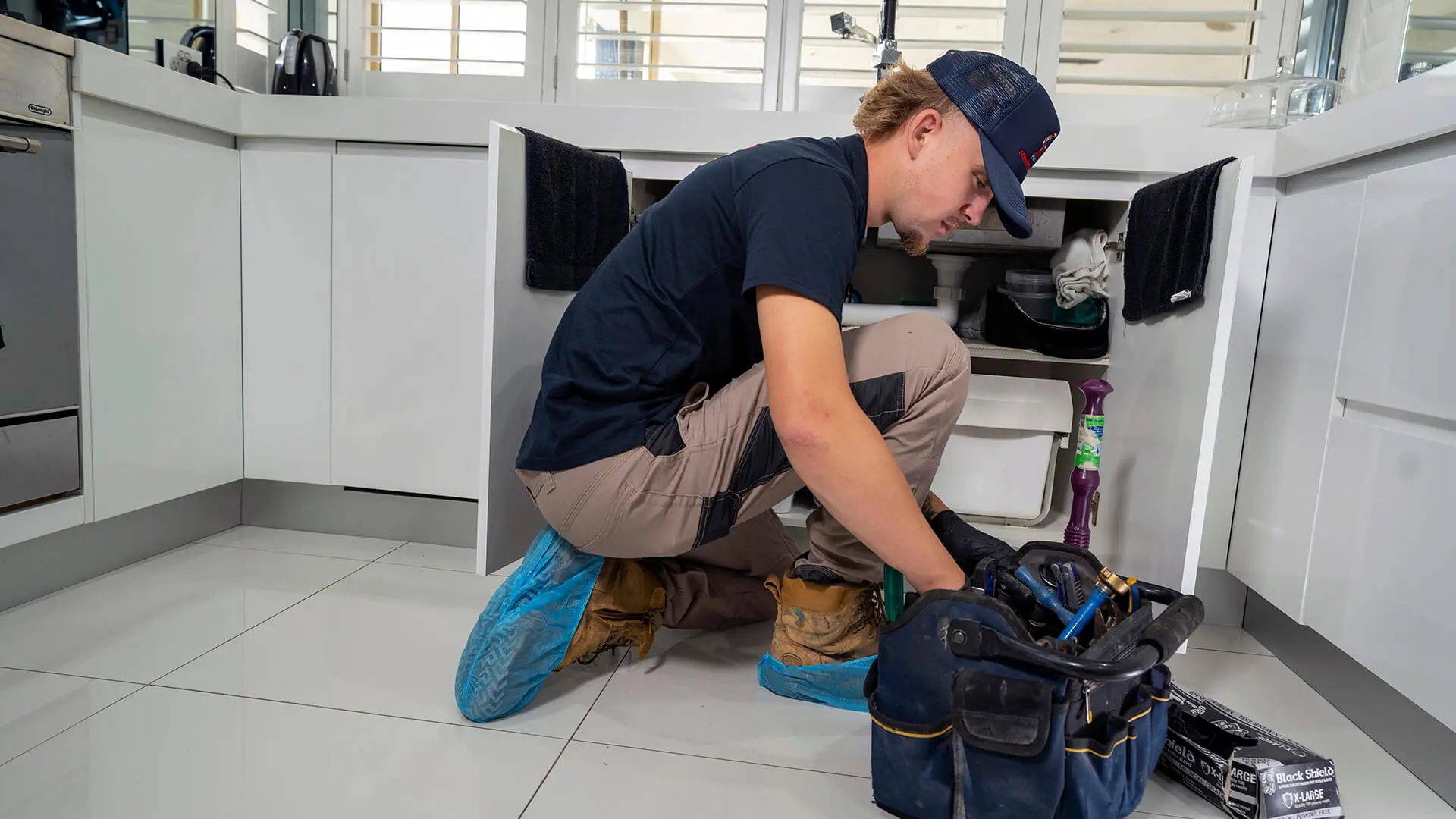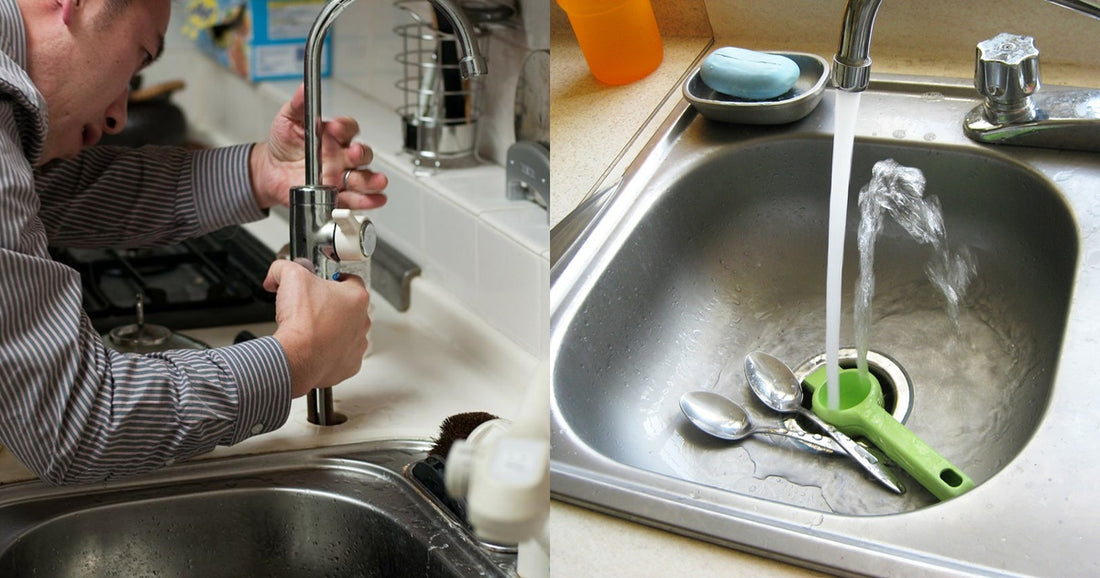Reliable Techniques For Repairing A Slow-Draining Sink
Reliable Techniques For Repairing A Slow-Draining Sink
Blog Article
Just how do you actually feel on the subject of 7 Ways To Fix A Slow-Draining Sink Before You Call A Plumber?

Intro
We've all existed: You're brushing your teeth or cleaning your hands, and you discover the water merging in the sink. Rather than promptly swirling away, it remains, transforming your once-refreshing morning routine right into a miniature swamp scene. A slow-draining sink isn't just annoying; it's commonly a sign of bigger pipes problems prowling beneath the surface area. The bright side is that the majority of slow-draining sinks can be taken care of with a little expertise, a few standard tools, and some persistence. Prepared to tackle this project head-on? Allow's roll up our sleeves and dive right in.
Recognizing the Sources Of a Slow-Draining Sink
Prior to you start poking around in your pipelines, it assists to know what could be causing the stagnation. Understanding the origin makes it simpler to pick the right repair.
Devices and Materials You'll Require
The right devices make all the distinction. Fortunately, you will not need a totally equipped plumbing's van to do the job.
Step-by-Step Guide to Repairing a Slow-Draining Sink
Now, allow's get involved in the nitty-gritty. This detailed procedure will certainly assist you with basic methods to recover your sink's drain.
Step 1: Eliminate and Clean the Stopper
Usually, the stopper (that tiny plug you lower to obstruct water) is the initial culprit. Remove it carefully and clean off any type of hair or crud entraped around its base. Rinse it completely prior to placing it back in position.
Action 2: Utilize a Bettor to Remove Particles
Got that bettor prepared? Setting it over the drainpipe and offer it a couple of company pumps. The concept is to produce suction that can loosen any clog. If you see littles particles drifting up, you're on the right track.
Step 3: Attempt a Drain Snake or Cord Hanger
If the plunger does not work, it's time to bring out the drainpipe snake. Gently feed it into the drain and twist as you go. You could feel some resistance-- that's most likely the obstruction. Keep turning and drawing until you get rid of the blockage. If you don't have a drainpipe snake, a straightened out cable wall mount can work in a pinch.
Step 4: Use a DIY Drainpipe Cleanser
A natural cleaner made from cooking soft drink and vinegar can break down residual crud. Pour half a mug of cooking soda into the drainpipe, followed by half a cup of vinegar. Let it fizz for around 15 mins, after that flush with warm water. This chemical reaction usually does marvels for small clogs.
Tip 5: Reassemble and Examine the Sink
Put every little thing back together and run the faucet. Does the water now swirl away at a reputable speed? If yes, offer on your own a pat on the back. If not, don't anguish-- there are still a few even more dress up your sleeve.
Vital Devices for DIY Repair Works
A plunger is your best beginning point. A small, sink-sized bettor produces suction that can dislodge small obstructions. For more persistent clogs, a drainpipe snake (occasionally called a plumbing professional's auger) works marvels. A pair of gloves, a flashlight, and possibly a set of protective goggles are likewise helpful.
Advised Cleaning Solutions
Light dish soap and hot water can help break down greasy build-up. A blend of cooking soda and vinegar is a reliable home remedy, and enzymatic cleaners use an even more environment-friendly strategy. Keep chemical drain cleaners as a last hope, as they can be rough on your pipelines.
Usual Offenders Behind Slow Drainage
So, what's obstructing points up? Usually, it's a mix of day-to-day debris-- think hair, soap residue, tooth paste residue, and remaining food particles. Gradually, these tiny bits gather and cling to the pipeline walls, progressively narrowing the flow and making it harder for water to pass through. Sometimes, natural resource from tough water can additionally contribute to the substance, developing the excellent tornado for persistent blockages.
When is it Time to Do Something About It?
If you see the water draining slower than normal, it's a good concept to interfere earlier as opposed to later on. Waiting too long might lead to complete obstructions, unpleasant smells, or perhaps pipe damage. If the water takes greater than a few seconds to clean out after switching off the faucet, consider it a red flag and prepare yourself to put on your DIY hat.
Safety First: Safety Measures and Prep work
Before you launch into unclogging mode, think of safety and security. You're dealing with potentially dirty water and debris, so slip on a set of handwear covers. If you're using chemical cleaners, ensure the room is well-ventilated and follow the directions on the label.
Protective Equipment and Work Space Arrangement
Put down some old towels or cloths around the sink location to catch dashes. Remove any products that may enter your way, like soap dispensers or tooth brush holders. Make certain you have excellent illumination-- grab a flashlight if needed.
Alternative Methods for Stubborn Clogs
Not all clogs are created equal. If your sink still declines to coordinate, consider these alternate options.
Sodium Bicarbonate and Vinegar Approach
We currently touched on this, however it's worth noting once again. This gentle, environment-friendly approach is more secure than chemical cleaners and typically rather efficient.
Enzymatic Drain Cleansers
Enzyme-based cleansers utilize natural germs to digest raw material. They're an outstanding option if you're wanting to stay clear of rough chemicals. Simply bear in mind, they may take a bit longer to function their magic.
Chemical Drainpipe Cleansers: Benefits And Drawbacks
Chemical cleansers can blow up with difficult obstructions quick, but they're not without downsides. They can produce heat and fumes, damages pipes if utilized excessively, and present environmental dangers. Utilize them sparingly, and constantly follow the instructions carefully.
Safety Nets to Keep Your Sink Flowing
Avoidance is the very best remedy. By embracing a couple of easy behaviors, you can keep your sink from decreasing to begin with.
Normal Cleaning Up Routines
Clean down the sink container and fixture area routinely. Get rid of hair or food particles prior to they have a possibility to wash down the drain.
Avoiding Damaging Substances Down the Drain
Reconsider prior to dumping coffee grounds, grease, or fibrous veggie scraps down the sink. These culprits hold on to pipe walls, creating blockages over time.
Routine Maintenance Checks
Arrange a fast regular monthly examination. Run warm water via the sink for a few minutes, focusing on the circulation. If it seems sluggish, act fast prior to it becomes a full-blown clog.
When to Call an Expert Plumbing Technician
Sometimes, despite how hard you try, that obstruct just won't budge. That's when it's time to bring in the pros.
Signs That Suggest a More Significant Problem
If your sink drains pipes slowly in spite of multiple efforts, or if you notice water supporting in various other fixtures (like your shower or bathroom), you might have an extra major pipes issue hiding much deeper in the system.
Balancing DIY Efforts with Professional Aid
While do it yourself can conserve you money and supply a feeling of success, there's no pity in calling a professional. An expert plumbing professional can examine your entire pipes configuration, guaranteeing there's no underlying damages or lasting issue that could cost you a lot more later on.
Comparing Expenses and Long-Term Solutions
Prior to making a decision, think about the big picture. An inexpensive, quick fix might solve the problem briefly, however buying a more long-term solution might conserve you cash and tension over time.
Weighing the Costs of Do It Yourself vs. Expert Solutions
DIY repairs often set you back bit greater than the price of a plunger or a container of baking soft drink. Specialist solutions, on the other hand, come with a price tag but may prevent repeated concerns and pricey repairs later on.
Buying Top Quality Fixtures and Upgrades
If your sink's style contributes to constant obstructions, it may be worth updating to higher-quality fixtures or modifying the pipes design. Consider this an investment in your home's capability and convenience.
Final thought
A slow-draining sink can seem like a small irritation, yet it's usually an indication that your plumbing requires a little TLC. By understanding the origin, using the right tools and methods, and dedicating to simple preventive measures, you can maintain your sink streaming freely. And when all else stops working, never ever hesitate to employ a professional-- your home's plumbing is worth the investment in care and upkeep.
Three Common Ways to Fix a Slow Drain
Baking Soda Method
Boil a full pot of water. Measure out cup of baking soda and pour it down the drain. Then take cup of the magical cleansing substance known as white vinegar and drop that down there too. Allow the mixture to fizz in the drain for five minutes as the vinegar and baking soda combine. Now dump in that whole pot of boiling water. This combination of cleaning substances should clear out anything that is causing your sink to drain slowly. If it doesn t...
Zip-It
If the baking soda method doesn t clear out your drain, it may be because a significant amount of hair and/or other debris has collected there and you need to remove it. Purchase a Zip-It tool at any home improvement or hardware store and insert it into your drain. It will catch any collected hair or debris that s blocking the flow of water. Pull it out. If it s got a big clump of hair, etc. on the end, you ve probably got your culprit.
Drain Cleaner
If these methods don t work, there is the standard drain cleaner that you can also buy in a hardware store or even your local grocery store. It s better if you can use a household solution, but these drain cleaners often work in a pinch. They re very simple to use. You generally just dump them in your drain and wait. If even this method is not effective, it may be time to call the plumber.
https://www.mrrooter.com/oneida/about-us/blog/2017/july/three-common-ways-to-fix-a-slow-drain/

As a fervent person who reads on How to Fix a Slow Draining Sink, I thought sharing that excerpt was worthwhile. Do you know about another person who is fascinated with the subject? Why not promote it. Thanks a lot for being here. Please check our site back soon.
Book An Appointment Report this page